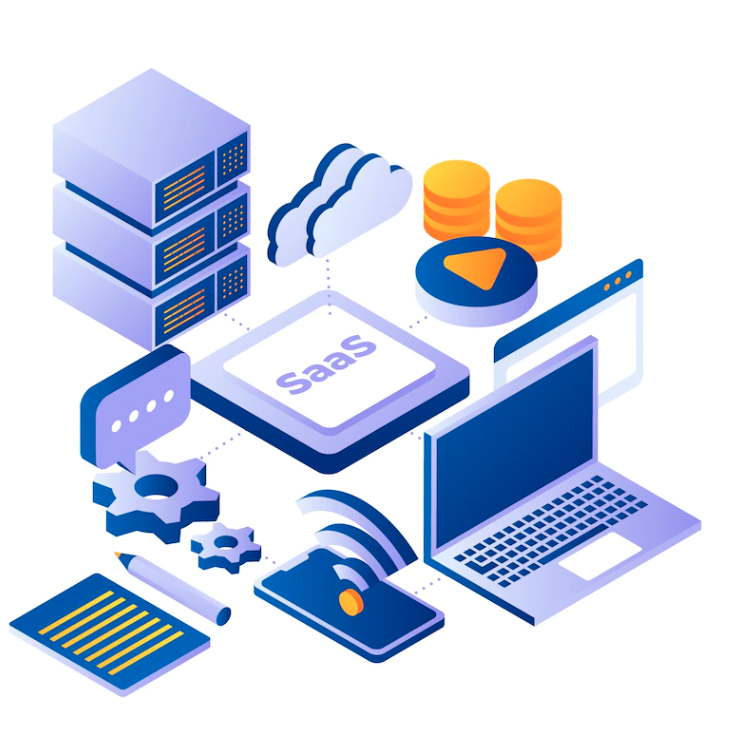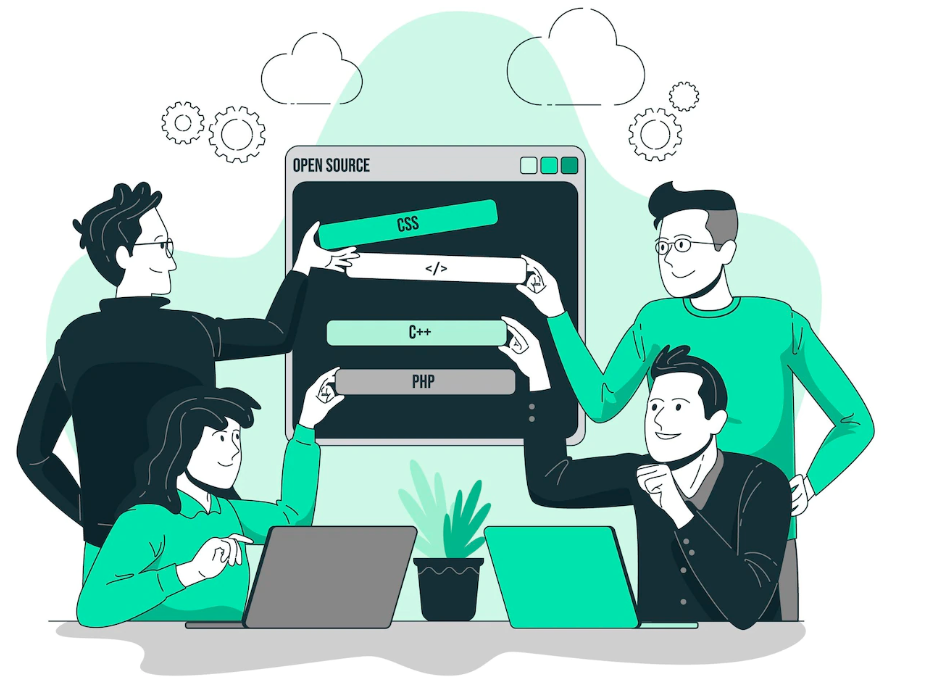Best Frameworks For eCommerce Web Development
Table of contents:
Technology frameworks for eCommerce web development
Effective types of eCommerce frameworks
Introduction:
Today, eCommerce is a novel face of the business infrastructure, taking customer acquisition and marketing practices to a new height. While developing the online store website, certain things might confuse you with your business plan, especially when custom eCommerce development is included in it.
According to the statistics, the overall revenue of retail eCommerce websites in Asia is estimated to reach two trillion USD by the end of 2022. In addition, the global retail eCommerce market is growing at a CAGR of 11.35%.
Choosing a programming framework is one of the important aspects of eCommerce website development which makes a significant difference in app performance, productivity, and functionalities. Developing an excellent and relevant customer experience is an important element of an eCommerce website.
To make the business ready for the hypercompetitive digital world, modern custom development solutions are here. Many eCommerce frameworks are available on the market that you can choose according to the business types and requirements that we will explain further.
Potential Technology Frameworks for eCommerce Web Development
The eCommerce framework is a collective set of tools, modules, and libraries, which offers a streamlined, synchronized and simple software development process. These frameworks help eliminate programming errors and repetitive coding and save development time.
Utilizing these frameworks for a software developemnt company can enhance their eCommerce web development projects by leveraging the built-in library tools and packages for efficient code development. It upgrades the eCommerce website with advanced front-end frameworks for UX/UI and robust backend frameworks for data and security management. In addition, full-stack frameworks are available with microframeworks client and server-side arrangements.
1. Laravel
Laravel is one of the popular eCommerce frameworks. Once you collaborate with a Laravel development company in India, you can come up with the most innovative plan. It is a PHP-written open-source framework that uses a model-view-controller (MVC) pattern and incorporates all object-oriented programming features. The framework operates with simple troubleshooting for easier bug detection and fixing.
This framework is highly adaptive, helping to develop flexible and scalable eCommerce functions. It offers compatible outsourcing integration for developing functional and fully featured eCommerce stores.
Most often, eCommerce stores collaborate to manage mail services, analytical tools, and payment practices. Moreover, Laravel guarantees exceptional website encryption and advanced native security for XSS threats and SQL injection.
2. Shopify
Shopify is one of the popular hosted eCommerce software that offers developers minimal technical difficulty to develop a basic and extraordinary online store. It simplifies store settlement and management with separate subscription and non-native tools.
This framework can help integrate the eCommerce storefront with over 100 other applications and deliver a seamless user experience. For example, Smile.io and Google Analytics 4 are activated just in a single click.
3. Magento
Magento is an open-source eCommerce software which is written in PHP programming language. This framework is easily deployable in the cloud (PaaS) or on personalized and dedicated servers. For an eCommerce website, Magento is a performance-driven, scalable and flexible framework which is an integral part of Adobe Experience Cloud. Therefore, it can be easily integrated with Adobe components such as consumer data and information platforms, analytics etc.
4. Woocommerce
WooCommerce is one of the famous and self-hosted frameworks with open source functions within WordPress websites. It is a flexible platform with top-notch customized features and functions. It offers excellent store management WooCommerce, which comprises an adequate starter variety of all the necessary features in eCommerce websites.
5. Angular
Angular is one of the best front-end JavaScript Google-driven frameworks. It is an open-source framework with minimal coding, making it adaptable to many popular eCommerce platforms. The framework includes flexible time-reduction elements and loads of beneficial resources such as AngularFire and Angular Elements.
Effective Types of eCommerce Frameworks:
1. SaaS eCommerce Frameworks:
SaaS is referred to as “software as a service”, which is quite a modern tech support for website development. In this framework, users do not buy but subscribe to the software. Furthermore, the vendor continues the hosting, maintenance and improvement of the framework and its features.
SaaS-powered platforms offer advanced functions and features compared to other platforms on the standards function. It has limited customization scope but has flexible APIs and excellent in-built integrations.
Paperturn is an example of a SaaS eCommerce Framework is - we are an online flipbook software that allows users to transform any company documents or PDF-format materials into a digital format e.g., an online brochure, catalog, magazine, eBook etc.
Advantages:
The vendor can provide real-time features with continuous upgradation, improving the frameworks.
It is quite cost-effective in comparison to the other two types of frameworks listed below.
SaaS can adapt to upcoming trends and therefore can sustain itself in the market as per the ongoing trends.
Maintenance and security cost is included in hosting charges, and so, there’s no need to pay extra charges.
Disadvantages:
The limited scope of customization.
2. Headless eCommerce Frameworks:
Headless eCommerce is one of the popular frameworks which easily dissociates front and back-end features. It helps retailers to select the personalized front-end display layer for delivering an excellent customer experience. No change in either part of the application will have an impact on the other.
It provides multi-vendor accessibility and approach, where a vendor can access the front-end and back-end solutions simultaneously.
It has a prominent benefit in enterprise business website development, enabling massive control and freedom. There is a scope to develop the system elements for independent operation instead of maintaining the collective internal functions.
ShopifyPlus is the best example for building headless solutions as it helps to achieve total creative control through which it provides you with the flexibility to build new selling opportunities anywhere – and manage it all from a central location.
Advantages:
This type of framework offers you high-end flexibility for front-end selections. As a result, it improves PWAs.
Usage of the back-end empowered functions for multiple website experiences.
The decoupling of the backend and front-end program do not obstruct and risk the website development process.
Disadvantages:
It becomes quite costly when implemented with back-end and front-end development.
The architecture of the framework is quite complicated and needs advanced expertise.
3. Open-Source eCommerce Frameworks
Open-source software comprises advanced accessibility and variation in the source code for a personalized experience. It is usually written in PHP language with a massive scope of customization in features and functions.
It requires expert assistance to implement the desired code maintenance. There is a high risk of data security threats with every developed customization; and so, it’s important to develop cybersecurity protection for encrypted functions and operations.
PrestaShop is a potential open source eCommerce platform that offers enhanced flexibility for picking and adding modules as per your expectations and building an appealing website or application.
Advantages:
Huge customization scope
Get the expert assistance of developers
Disadvantages:
Have a higher risk for data security and cybersecurity due to lack of cyber resilience.
Conclusion
These are the details of some of the best eCommerce frameworks beneficial for your business and its categories. In the article, we have summarized three major categories of frameworks and their key features, which benefit the eCommerce website development process.
A perfect eCommerce framework supports you in developing a scalable, flexible and performance-driven eCommerce website with a top-notch user interface and agile functions. The best eCommerce development company offers you optimal support to implement an accurate framework for your business.
You can select the accurate category for the framework according to the specific business type, needs and requirements. All the frameworks perform well when implemented according to the business needs. Choosing the right framework will completely transform the business performance and boost the overall revenue by improving the ROI and conversion rates.
Author: Harikrishna Kundariya
Co-founder & Director of eSparkBiz Technologies.
His 10+ years experience enables him to provide digital solutions for new start-ups based on IoT and ChatBot.





